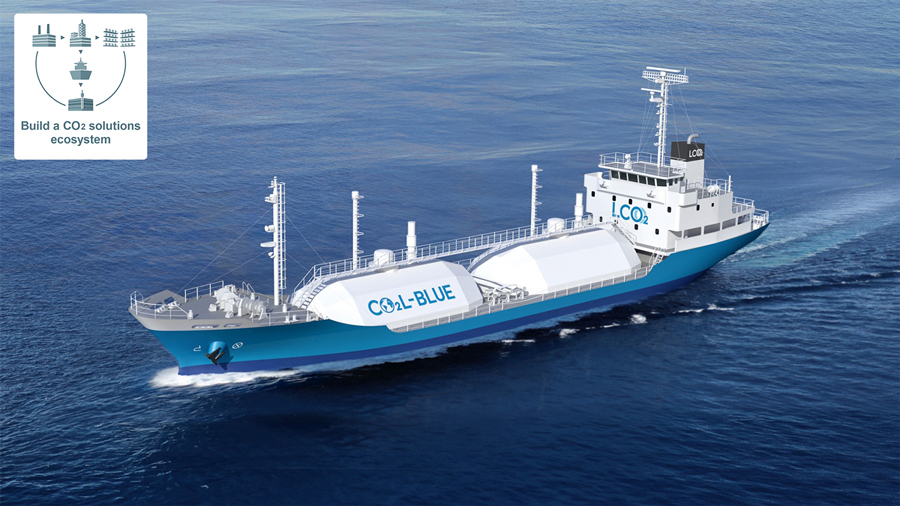
World’s First Demonstration Test Ship for Liquefied CO2 Transportation
Mitsubishi Shipbuilding Co., Ltd., a Yokohama-based member of Mitsubishi Heavy Industries (MHI) Group, has concluded a contract with Sanyu Kisen Co., Ltd., a Kobe-based enterprise principally engaged in management of ships navigation in Japanese as well as foreign waters, calling for the construction of a demonstration test ship to transport liquefied carbon dioxide (LCO2) in conjunction with initiatives of the New Energy and Industrial Technology Development Organization (NEDO) in ”CCUS R&D and Demonstration Related Project / Large-scale CCUS Demonstration in Tomakomai / Demonstration Project on CO2 Transportation / R&D and Demonstration Project for CO2 Marine Transportation” (the demonstration projects). Construction will get underway at the Enoura Plant of MHI’s Shimonoseki Shipyard & Machinery Works, with completion and delivery scheduled for the second half of the fiscal 2023.
The Engineering Advancement Association of Japan (ENAA), one of the entities performing business relating to the demonstration projects, will charter the ship from Sanyu Kisen, the subcontractor, and operate it for the project purposes. Under consignment from ENAA, three additional project partners – Kawasaki Kisen Kaisha, Ltd. (“K” LINE), Nippon Gas Line Co., Ltd., and Ochanomizu University – will accelerate R&D of the LCO2 transportation technology and contribute to cost reduction of CCUS technology and safe, long-distance and large-scale transportation of LCO2.
Although ships to carry LCO2 used in the food industry have previously been constructed and operated in Europe and Japan, the ship to be newly constructed is expected to be the world’s first LCO2 carrier intended specifically for CCUS. Mitsubishi Shipbuilding will be in charge of all aspects from the ship design through construction, including the cargo containment system, applying its gas handling technologies and expertise cultivated through the construction of liquefied gas carriers (both LPG and LNG types).
CCUS is garnering attention today as an effective means of achieving a carbon-neutral society. Because CO2 emissions sites are often located distant from the sites selected for carbon utilization or storage, demand is expected to increase for LCO2 carriers which can transport their cargo safely and economically. Through the experience to be gained by constructing the world’s first LCO2 carrier built specifically for CCUS, MHI Group will strengthen its current strategic business focused on the energy transition. The Company will also continue its dedication to developing and providing the technologies relating to LCO2 carriers necessary for CCUS value chain building, to contribute to CO2 ecosystem development.
Information Source: Read More–>
Oil and gas, press , | Energy, Climate, Renewable, Wind, Biomass, Sustainability, Oil Price, LPG, Solar, Electric,

